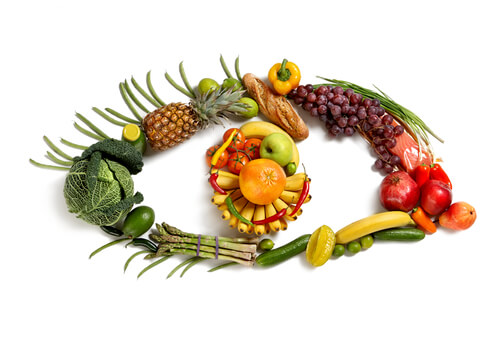
Parents have been telling their children to eat their vegetables to grow big and strong for quite some time now, and it’s no wonder! A varied and healthy diet rich in vitamins and minerals has been proven, time and time again, to keep us healthier, happier, and help us live longer. But that’s not all eating your veggies can do for you. Just imagine if your mother had tried talking you into eating your kale and broccoli by telling you that they were good for your eyes, too! Would you have believed her? Because the science is there to back others everywhere up!
In order to get the biggest vision boost into your diet, you’ll need to incorporate a variety of healthy options into your daily intake and make sure to focus on the following groups of vitamins and minerals. Keep reading to learn more!
Vitamin A:
Think beta-carotene and Bugs Bunny cracking jokes about carrots making him see better. Vitamin A is a huge vision ally, and beta-carotene and vitamin A help fight macular degeneration and cataracts while also boosting your general vision health.
Foods to eat to boost your Vitamin A intake include
- carrots
- spinach
- egg yolks
- kale
- dairy products
Vitamin C
Vitamin C, which absorbs acid, is a potently powerful antioxidant found in abundance in fruits and vegetables. This incredible vitamin helps not only form, but also maintain, collagen in the cornea of the eyes and other connective tissue throughout the body.
Up your Vitamin C with these foods:
- green peppers
- citrus juices (think fresh squeezed orange juice!)
- broccoli
- kiwi, oranges, and other citrus fruits
Vitamin E
The benefits of vitamin E for your eyes and vision are too good to ignore. Nuts and seeds are not only tasty snacks but also good sources of this essential vitamin known for decreasing your risk of age-related macular degeneration and cataracts, which affects a whopping 70 percent of those aged 75 and over!
Foods high in vitamin E
- sunflower seeds
- nuts
- whole grains
- eggs
Zinc
Zinc is so important to our bodies that anyone at any age is more likely to develop an infection if your body is lacking in this mineral. Zinc also is essential to immune system health, our brains, and overall eye health, as well. When it comes to your eyes, zinc actually partners up with vitamin A to create melanin, a pigment which helps protect your eyes. Some evidence suggests that zinc may help slow the progression of macular degeneration, which is an age-related condition.
Foods to include for zinc boost
- meats
- dairy products
- fish
- whole grains
- poultry
Lutein
It’s not always about the medicine we take, but the foods we eat. Those containing lutein and zeaxanthin are good bets to include in your diet to prevent or delay the progression of age-related eye conditions. Lutein and zeaxanthin are antioxidants located in the eyes, and one good way to make sure they get a signal boost is by incorporating a few of these key foods into your diet.
Lutein-containing foods
- green, leafy vegetables
- eggs
- brussels sprouts
- kale
- corn
Specialists in Ophthalmology South Texas
Excellent eye health begins with a comprehensive eye exam. Contact the South Texas Eye Institute and schedule an appointment today!

